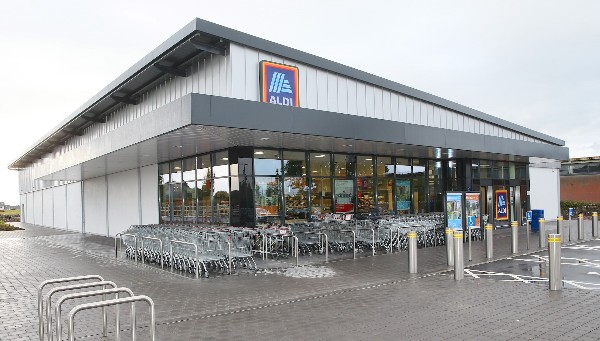
Aldi Ireland has become the first retailer to donate non-surplus food to FoodCloud during the Covid-19 pandemic to help with the unprecedented demand on FoodCloud’s services from charities.
FoodCloud has experienced a huge surge in demand for its food redistribution services in recent months. Between March and June, charities sought 44% more food donations compared to the same period in 2019, with 968 tonnes of food, equating to 2.3 million meals, distributed through retail partners and FoodCloud hubs during this time.
With such heightened demand, it has been necessary for FoodCloud to source and distribute non-surplus food for the very first time in its seven years of operations, with Aldi also stepping in for the first time to provide additional support in a new way.
As a direct result of Aldi’s donation, FoodCloud was able to partner with Local Development Companies early in the pandemic to support 17 new food hubs in 15 counties, meaning it could reach more charities and provide meals for more people in need across Ireland as Covid-19 took its toll on communities.
June 2020 witnessed an all-time record peak in charities seeking FoodCloud’s help, with donations to charities up 64% compared to 2019. During June, FoodCloud donated 274 tonnes of food, the equivalent of 652,000 meals, through retail partners and dedicated FoodCloud hubs, saving the equivalent of 877 tonnes in CO2 emissions.
In addition to ongoing surplus food donations, Aldi has also supported FoodCloud financially through a donation of €50,000 of food, equating to an extra 4,000 meals a week. The food donations of cupboard essentials such as rice, pasta and tinned goods for communities and individuals in need.
Commenting, John Curtin, Aldi Group Buying Director, said: “We are committed to working with FoodCloud to help combat food poverty. The organisation needed non-surplus food donations for the first time, in the face of growing demand on its services from charities. Covid-19 has put increasing pressure on us all, and Aldi is delighted to have been able to assist FoodCloud. We can see the ripple effect that comes from that with FoodCloud working with the Local Development Companies to now support 17 new food hubs across the country, which in turn are helping even more people in need.”
Commenting, Iseult Ward, CEO of FoodCloud, said: “More and more charities have been seeking our services since the start of the pandemic. Thanks to the early donation by Aldi of €50,000 of non-surplus stock, we have been able to create new partnerships with Local Development Companies, ensuring ongoing distribution to those in need as the economic fallout of Covid-19 continues to take its toll on communities. We will continue helping charities and communities in need across Ireland, and donations such as Aldi’s are a great help to us.”
Mary Sheridan, Principal of St Bricin’s College in Belturbet, Co Cavan, said: “As a principal of a DEIS school supporting families in the area, we knew there was a gap in supply to some of the most vulnerable in our community. It was just incredible to see the Gardaí and the Civil Defence delivering the FoodCloud food parcels from the Cavan County Local Development hubs to those in need. This food has connected the community, giving people assurance that they are not alone in such uncertain times.”
Joe Saunders, Manager of Irish Local Development Network, added: “Local Development Companies have been delighted to partner with FoodCloud to rapidly set up 17 new Food Hubs to reach families in need across the country.”
FoodCloud connects businesses with surplus food to charities in need, and currently supplies a network of over 500 charities. Food is distributed from stores and dedicated FoodCloud hubs to help charities reach those most vulnerable in their communities.
